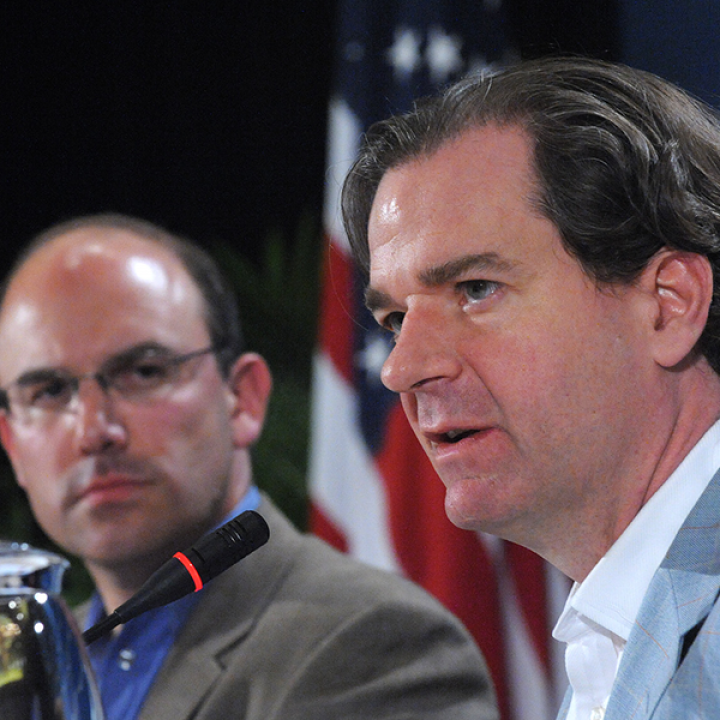

Counterterrorism experts Juan Zarate and Peter L. Bergen agreed that the nature of the war on terror has fundamentally shifted from the manner in which the U.S. strategically and tactically approached efforts against al-Qaeda after 9/11. “No politician is going to say it’s over, but people in our position maintain that al-Qaeda is contained,” Bergen said at The Washington Institute's Weinberg Founders Conference.
Bergen, director of the National Security Studies Program at the New America Foundation, argued that al-Qaeda no longer poses an existential threat to U.S. national security interests due to its inability to execute large-scale operations against the homeland. The terrorist group has lost the war of ideas, Bergen argued, and has suffered extensive reputational damage among its key constituencies.
Zarate, senior advisor at the Center of Strategic and International Studies, noted that al-Qaeda’s “metastasized ideology” has empowered lone actors to engage in small-scale terrorist attacks. He also noted that the Arab Spring and the ensuing rise of Islamists in governments across the Middle East may offer al-Qaeda more space to operate. Looking ahead, Zarate said that the next chapter in the war on terror will be dictated by how al-Qaeda and other extremist elements fit into this new political landscape.
Both panelists urged that Americans should remain vigilant, but unafraid. Bergen and Zarate criticized the current lexicon surrounding the war on terror as too constrained, saying that the United States will need to expand both legal and political definitions to combat the evolving nature of the terrorist threat. According to the experts, future counterterrorism efforts must target the spread of extremist ideology, both internationally and at home.



